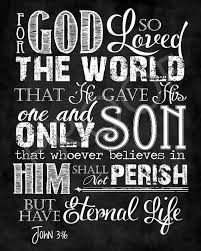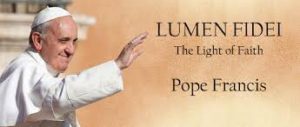
Did you know that faith, hope, and love are gifts from God? Our catechism says of these theological virtues, “They are infused by God into the souls of the faithful to make them capable of acting as his children and of meriting eternal life (#1813).” The word merit causes angst in our separated brethren, but it means simply worthy. We are worthy of eternal life because we accept God’s gifts. Of course, we also have a responsibility once we accept them to “work out our salvation in fear and trembling (Philippians 2:12) because we are “created in Christ Jesus for good works (Ephesians 2:10) since “Faith without works is dead (James 2:17). They are both a gift and a task, and they work in concert.
My favorite philosopher Peter Kreeft illustrates the theological virtues several ways. He calls faith, hope, and love heaven’s actual gate, not just the way to get to the gate. He calls them the glue that attaches us to God and a three-legged stool that supports the whole Christian life. He calls faith the root, hope the stem, and charity the flower. He connects them: faith without charitable works is dead and without hope is impossible; hope without faith is wishful thinking and without love is selfish; love without faith is merely feelings and without hope is desperation. Like a pretzel.
The oft-memorized John 3:16 is a perfect example of the theological virtues moving from God to man: “For God so loved the world (love), He gave His only begotten Son, that whosoever believes (faith) in Him will not perish but have everlasting life (hope).” Our belief moves us to act upon these gifts and live as children of light (Ephesians 5:8).
“Let us draw near with a true heart in full assurance of faith, with our hearts sprinkled clean from an evil conscience and our bodies washed with pure water. Let us hold fast the confession of our hope without wavering, for He who promised is faithful; and let us consider how to sir up one another to love and good works, not neglecting to meet together as is the habit of some, but encouraging one another all the more as you see the day drawing near (Hebrews 10:22-15).” We are to take these theological virtues and do things: hold fast, help each other, perform good works, meet together. This will transform ourselves and the world; God’s kingdom will come.
“We give thanks to God always for you all, constantly mentioning you in our prayers, remembering before our God and Father your work of faith and labor of love and steadfastness of hope in our Lord Jesus Christ. For we know, brethren beloved by God, that he has chosen you, for our gospel came to you not only in word but also in power and in the Holy Spirit and with full conviction (1 Thessalonians 2:2-5).” What a wonderful mix of God’s love and faithfulness with his people’s labors of love and hope. Not mere assent, but conviction and action. That is how we can walk as children of light. This is our responsive obligation to God and his kingdom for the theological virtues he pours into us at baptism. This is how we nurture them to maturity as we run the race with perseverance.
 And we do not even have to work and run on our own. The Holy Spirit is our Comforter, sent to teach, convict, remind, and comfort us on this road that faith opens up for us. Pope Francis concludes Lumen Fidei (The Light of Faith) with a reminder that Jesus is the center of it all and a request of Mary to pray for us: “Mother, help our faith! Teach us to see all things with the eyes of Jesus, your Son, our Lord” We are also surrounded by a cloud of witnesses, all of us looking to our Lord, the author and perfecter of our faith.
And we do not even have to work and run on our own. The Holy Spirit is our Comforter, sent to teach, convict, remind, and comfort us on this road that faith opens up for us. Pope Francis concludes Lumen Fidei (The Light of Faith) with a reminder that Jesus is the center of it all and a request of Mary to pray for us: “Mother, help our faith! Teach us to see all things with the eyes of Jesus, your Son, our Lord” We are also surrounded by a cloud of witnesses, all of us looking to our Lord, the author and perfecter of our faith.
Because these virtues are infused by God, I am humbled and mindful of my smallness near the great I Am who knows me and wants me to be happy with him forever. I am amazed and grateful that the Creator loves me and gives me gifts that will draw me closer to him. I am serious and attentive to the work involved in keeping these gifts supple and useful for the kingdom of God. When creation is fully renewed with a new heaven and new earth, there will be no more need for faith and hope, for we will have Jesus ever with us. But love will go on forever. Maranatha.
